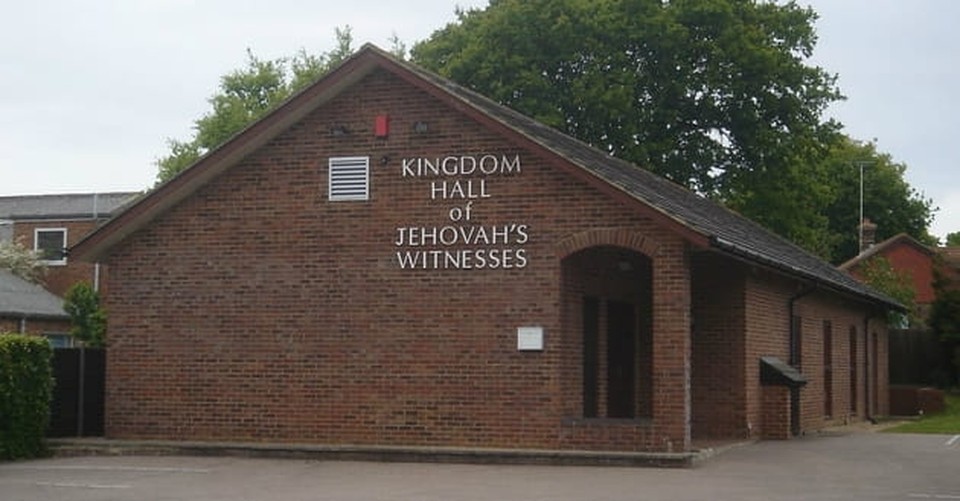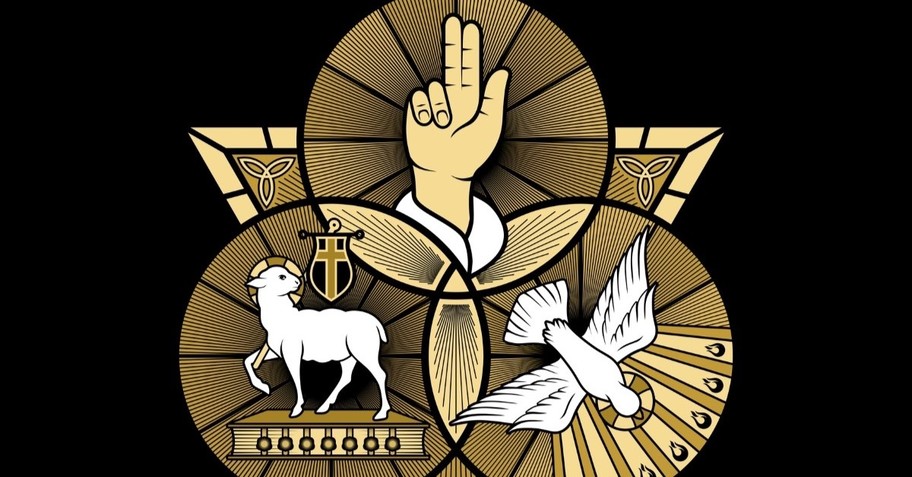10 Things Everyone Should Know about Jehovah's Witnesses and Their Beliefs

Jehovah's Witnesses are a people of faith that many of us likely don't know that much about. We may remember them as the people who often come to our homes in order to evangelize, but do we actually know what they believe? Below are 10 facts about this group which branched off from orthodox Christianity in the late 1800's. We answer the questions of how they got their start, what their core beliefs are, and how many people ascribe to this faith in the world today below.
Photo courtesy: ©iStock/Getty Images Plus/KatarzynaBialasiewicz

1. When were the Jehovah's Witnesses founded?
Jehovah's Witnesses started in 1870 when a man named Charles Taze Russell led Bible studies in Pittsburgh, Pennsylvania. The Jehovah's Witnesses movement came out of the Bible Student movement, also founded by Taze. When Taze began disputing some of the traditional views within Christianity, the Jehovah's Witnesses were born.
During his ministry, Russell quarreled with many tenets of mainstream Christianity, including immortality of the soul, hellfire, predestination, the fleshly return of Jesus Christ, the Trinity, and the burning up of the world.
In 1876, Russell encountered Nelson H. Barbour; later that year, they together produced the book Three Worlds, which combined restitution views with end-time prophecy.
After Russell's death in 1916, Joseph Franklin Rutherford (1869-1942) became the leader of the Jehovah's Witnesses.
In 1894, Rutherford became a member of the Bible Student movement. He was quickly promoted within the movement and became the Watch Tower Society president in 1917. As president, Rutherford changed the Watch Tower Society by making it more organized and aggressive in spreading its beliefs. He also introduced many new doctrines, including believing the world would end in 1925.
Photo courtesy: wikimedia commons, public domain

2. Where did Jehovah's Witnesses get their name?
Jehovah's Witnesses focus on God the Father, so their name is taken from the Tetragrammaton, written as YHWH or JHVH and articulated either as Yahweh or Jehovah. The group was initially called the Watch Tower Society because founder Charles Taze Russell published Zion's Watch Tower and Herald of Christ's Presence magazine.
According to their website, "Jehovah is the personal name of God, as found in the Bible. (Exodus 6:3; Psalm 83:18) A witness is a person who proclaims views or truths of which he is convinced."
Photo courtesy: Wikimedia Commons

3. Do Jehovah's Witnesses use the same Bible as Christians?
Jehovah's Witnesses use a Bible translation called the New World Translation. Before this translation was released specifically by and for Jehovah's Witnesses, most relied on the King James Version. According to TowerWatch.com:
"The New World Translation of the Bible is Jehovah's Witnesses own translation, no other religious group uses this Bible and Jehovah's Witnesses make very little use of other Bibles.
The translators of The New World Translation were: Nathan Knorr, Albert Schroeder, George Gangas, Fred Franz, M. Henschel."
One of the most notable features of the NWT is its use of the name "Jehovah" to represent the Tetragrammaton, the four-letter Hebrew name of God (YHWH). This appears around 7,000 times in the NWT. In contrast, most other translations use "LORD" or "GOD" in all capital letters to denote the Tetragrammaton.
Photo courtesy: ©Getty Images/Boonchai Wedmakawand

4. Do Jehovah's Witnesses believe in the Trinity?
The answer to this is no, Jehovah's Witnesses do not believe in the Trinity. It is one of the major ways in which Jehovah's Witnesses differ from various Christian denominations. They hold a unique theological position that rejects the traditional Christian understanding of the Trinity as the belief in one God in three persons: Father, Son (Jesus Christ), and Holy Spirit. Instead, Jehovah's Witnesses believe in a unitarian view of God, where God is considered a single divine entity and not a triune being.
Jehovah's Witnesses refer to the fact that the Bible never explicitly mentions the term "trinity." They claim this "doctrine developed gradually over several centuries and through many controversies."
According to Jehovah's Witness theology:
God: They believe in one God, Jehovah, who is the Creator and Sovereign Ruler of the universe.
Jesus Christ: Jehovah's Witnesses believe that Jesus Christ is a separate and distinct created being, not co-equal or co-eternal with God. They view Jesus as the first and highest creation of Jehovah and consider him the Son of God.
Holy Spirit: They believe that the Holy Spirit is not a person but is God's active force or power that He uses to accomplish His purposes.
Photo courtesy: ©SweetGrace/Getty Images

5. What do Jehovah's Witnesses teach about Jesus?
Jehovah's Witnesses believe that Jesus is not equal with God. They teach that Jesus was created by God and not coexistent wth Him. This, of course, is a major diversion from orthodox Christianity. JW.org explains, "[W]e take Jesus at his word when he said: 'The Father is greater than I am.' (John 14:28) So we do not worship Jesus, as we do not believe that he is Almighty God."
Photo courtesy: ©Thinkstock/kevinschreiber

6. What do Jehovah's Witnesses believe about the Holy Spirit?
Similar to their view of Jesus, Jehovah's Witnesses do not believe the Holy Spirit is equal to the Father. They instead believe the Holy Spirit is a force applied by God.
Jehovah's Witnesses claim that the Holy Spirit is "impersonal": "By referring to God’s spirit as his 'hands,' 'fingers,' or 'breath,' the Bible shows that the holy spirit is not a person. (Exodus 15:8, 10) A craftsman’s hands cannot function independent of his mind and body; likewise, God’s holy spirit operates only as he directs it. (Luke 11:13) The Bible also compares God’s spirit to water and associates it with such things as faith and knowledge. These comparisons all point to the impersonal nature of the holy spirit." Their beliefs about the Holy
Photo Credit: ©iStock/Getty Images Plus/sakepaint

7. Do Jehovah's Witnesses celebrate holidays or birthdays?
Jehovah's Witnesses don't celebrate Christmas or Easter, which makes sense when you remember that they don't believe Jesus is equal to God. They also don't celebrate other national holidays or birthdays in an attempt to remain separate from the world.
Their refusal to participate in these celebrations is based on their belief that such festivities often originate from pagan customs or promote behaviors and values that are contrary to biblical teachings. For example, they cite instances in the Bible where birthday celebrations are linked to negative events, such as the execution of John the Baptist, to support their view that such occasions are not to be celebrated.
Photo credit: ©GettyImages/jacoblund

8. What do Jehovah's Witnesses believe politically?
Jehovah's Witnesses try to remain politically neutral. They don't believe in serving in politics or in the military, mainly as another way for them to distance themselves from the culture. Instead, they emphasize citizenship in God's heavenly kingdom.
"Jehovah’s Witnesses remain politically neutral for religious reasons, based on what the Bible teaches. We do not lobby, vote for political parties or candidates, run for government office, or participate in any action to change governments. We believe that the Bible gives solid reasons for following this course," states JW.org.
Photo courtesy: ©Getty Images/Enterline Design Services LLC.

9. What do Jehovah's Witnesses believe about medical help?
Jehovah's Witnesses hold the controversial view of rejecting blood transfusions, even in life-or-death situations. Recently, Russia banned Jehovah's Witnesses and this issue was one of the reasons for their doing so.
"Some treatments conflict with Bible principles, though, and we reject these. For example, we don’t accept blood transfusions because the Bible forbids taking in blood to sustain the body. (Acts 15:20) Likewise, the Bible prohibits health treatments or procedures that include occult practices.—Galatians 5:19-21," explains JW.org.
Photo courtesy: ©Thinkstock/NexTser

10. How many Jehovah's Witnesses are there today?
There are reportedly 8.3 million Jehovah's Witnesses around the world and nearly 120,000 congregations. They are also known for their evangelical work going door-to-door attempting to make converts.
Photo Credit: ©Unsplash/stormseeker
Additional FAQ
What Do Jehovah's Witnesses believe about Salvation and How to Be Saved?
To attain salvation, Jehovah's Witnesses must live in accordance with the teachings of the Watchtower Society, which includes door-to-door evangelism, following moral and ethical standards, and active participation in the Jehovah's Witness community.
The majority of Jehovah's Witnesses hope for salvation in a restored paradise on Earth. They believe that God's original purpose for humanity was to live forever in a paradise on Earth, and this purpose will be fulfilled in the future. Those with the earthly hope believe that only a limited number of 144,000 individuals, known as the "anointed class," will go to heaven to rule with Christ. The rest of faithful Witnesses will be resurrected on Earth and will have the opportunity to live in a restored paradise after Armageddon.
Why do Jehovah's Witnesses go door-to-door?
Jehovah's Witnesses are known for their door-to-door evangelism, which is central to their faith. They believe it fulfills biblical commands to preach the gospel, based on passages like Matthew 28:19-20 and Acts 20:20. This personal outreach is seen as a way to educate others about the Bible and share hope. Their goal isn't just conversion but fulfilling a divine mandate to warn others about the end times and the importance of living according to God’s requirements for salvation.
How do Jehovah's Witnesses handle disfellowshipping and shunning?
Jehovah’s Witnesses practice disfellowshipping as a form of discipline for serious sins, expelling unrepentant members from their community. The congregation is instructed to shun the disfellowshipped individual, limiting contact to essential family matters if they live together. This practice is intended to maintain moral integrity within the congregation and encourage repentance. Though often leading to emotional distress, Jehovah's Witnesses believe shunning aligns with biblical principles and helps guide the individual back to faith.
What do Jehovah's Witnesses believe about the end times?
Jehovah's Witnesses believe we are living in the "last days," marked by global unrest and moral decline, signaling the approach of Armageddon. They view Armageddon as a literal battle where God will destroy evil and corrupt governance. After this, the earth will be transformed into a paradise where the righteous will live in peace under God's rule. This belief shapes their sense of urgency in evangelism, as they feel a duty to warn others about the coming judgment and offer hope through obedience to God.
This article is part of our Denomination Series listing historical facts and theological information about different factions within and from the Christian religion. We provide these articles to help you understand the distinctions between denominations including origin, leadership, doctrine, and beliefs. Explore the various characteristics of different denominations from our list below!
Mormons: The Church of Latter Day Saints & Their Beliefs
Baptist Church: History & Beliefs
Presbyterians: History & Beliefs
Mennonites & Their Beliefs
United Methodist Church: History & Beliefs
Seventh-Day Adventists & Their Beliefs
The Pentecostal Church: History & Beliefs

Originally published October 17, 2024.








